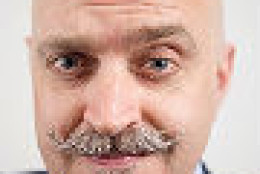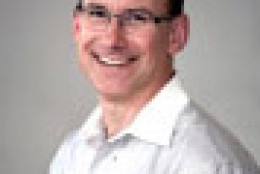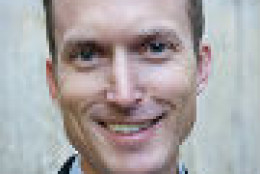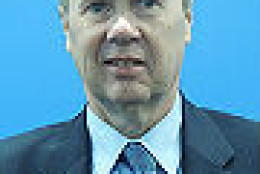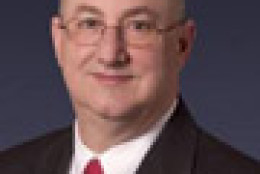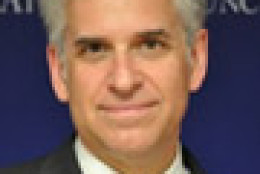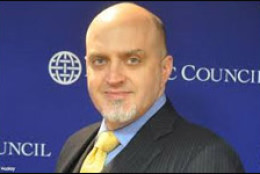Atlantic Council
-
A new series of acquisition changes called "Bending the Cost Curve" aims to make the overall Air Force acquisition process more responsive to technological advances, and reduce the time it takes to buy major weapons systems. The Air Force Research Lab will host a technology challenge program with the largest award in military history.
January 16, 2015 -
Cyber attacks come in three different flavors, at least when it comes to figuring out who's behind the attack. That's according to Jay Healey -- he's director of Cyber Statecraft Initiative at the Atlantic Council. On In Depth with Francis Rose, he explained the three flavors of cyber attribution.
January 09, 2015 -
The Senate might confirm Defense Secretary Chuck Hagel's replacement in less than a month. At the moment, chances look good for former deputy defense secretary Ash Carter to take the helm at the Pentagon. Steve Grundman is George Lund fellow for emerging defense challenges for the Atlantic Council's Brent Scowcroft Center on International Security. He's also former deputy defense undersecretary for industrial affairs and installations. On In Depth with Francis Rose, Steve tells Federal News Radio's Sean McCalley Congress has an opportunity to appoint a leader who wants change.
December 30, 2014 -
The new Call of Duty video game comes out on Nov. 4. The concepts in that war game are similar to the modeling and simulation training tools the Department of Defense uses. Art may be another way to approach understanding the future of war fighting. August Cole is a Senior Fellow for the Brent Scowcroft Center on International Security at the Atlantic Council. He moderated a discussion with the writer Dave Anthony called the Future of Unknown Conflict, and is Director of the new Art of Future War project. On In Depth with Francis Rose, he explained the relationship between art and military strategy.
October 02, 2014 -
Preparing for events before they happen has been a task that national security and intelligence officials in government have done to varying degrees of success. One source of preparation material is the Global Trends document from the National Intelligence Council. Mat Burrows is director of the Strategic Foresight Initiative at the Atlantic Council. His new book is "The Future Declassified: Megatrends that will Undo the World Unless We Take Action." It's an extension of the work he did on Global Trends. On In Depth with Francis Rose, he explained what the Global Trends document is and who reads it.
September 15, 2014 -
Back in 2012, then-defense secretary Leon Panetta warned of a catastrophic cyber attack that could cripple an entire nation or its military. He called it a cyber Pearl Harbor. It was emblematic of a lot of the conventional wisdom that's built up around cyber warfare over the past decade or so. In a recent op-ed, Jay Healey challenges some of that conventional wisdom. Healy is director of Cyber Statecraft Initiative at the Atlantic Council. On In Depth with guest host Jared Serbu, he argued not only is deterrence possible in cyberspace, it's been a reality for a couple decades now.
August 08, 2014 -
Former Deputy Defense Secretary Bill Lynn says the Pentagon needs to adjust its strategy to take advantage of the global and commercial technology markets.
July 08, 2014 -
After a five-year period during which the Air Force had no Senate-confirmed official at the top of its acquisition chain, the service finally has a leader in place. Dr. William LaPlante was confirmed in February as assistant secretary for acquisition. In a speech at the Atlantic Council last week, he outlined his five main priorities. Arnold Punaro introduced LaPlante at that event; he explained the potential for defense acquisition reform on In Depth with Jared Serbu.
June 19, 2014 -
Congress is closer to cybersecurity legislation that tries to protect infrastructure from attacks. But Congress, and all the other organizations that make policy that affects the Internet, may be asking the wrong questions. Jay Healey, director of the Cyber Statecraft Initiative at the Atlantic Council, writes about the future of cybersecurity in National Interest Magazine. He explains on In Depth with Francis Rose what questions Congress should be asking.
June 13, 2014 -
Both the Pentagon and Congress are missing a critical piece of national security strategy in the fiscal 2015 National Defense Authorization Act. Barry Pavel, vice president of the Atlantic Council and director of the Brent Scowcroft Center on International Security, joined Francis Rose for Pentagon Solutions. Barry writes policymakers need to consider a formal strategy to address the power of the individual.
June 04, 2014 -
Jason Healey, the director of the Cyber Statecraft Initiative for the Atlantic Council, endorsed an approach that would turn how government and the private sector work together to battle cyber threats on its head.
October 22, 2013 -
On the In Depth show blog, you can listen to the interviews, find more information about the guests on the show each day and links to additional resources.
May 24, 2012


